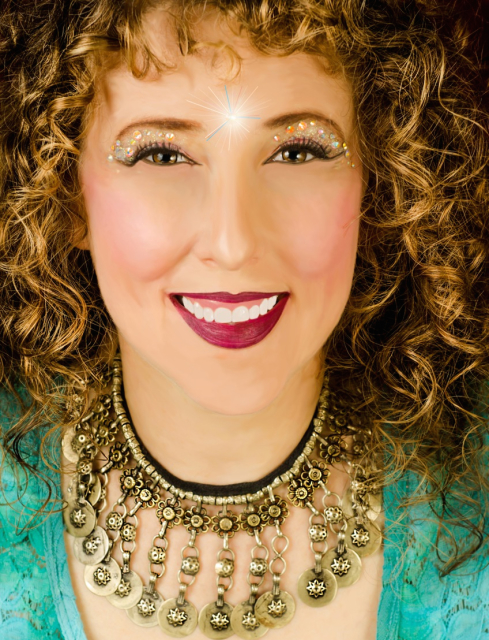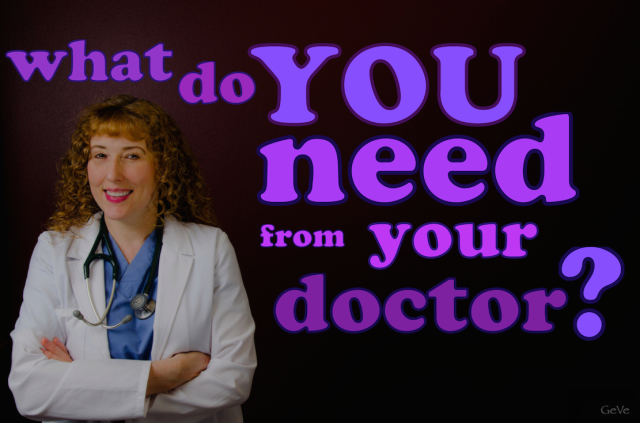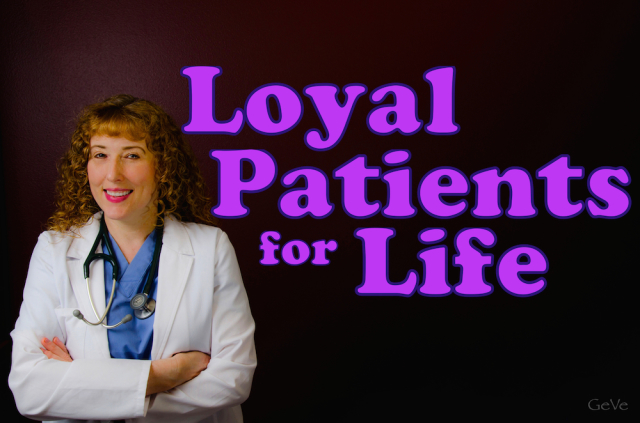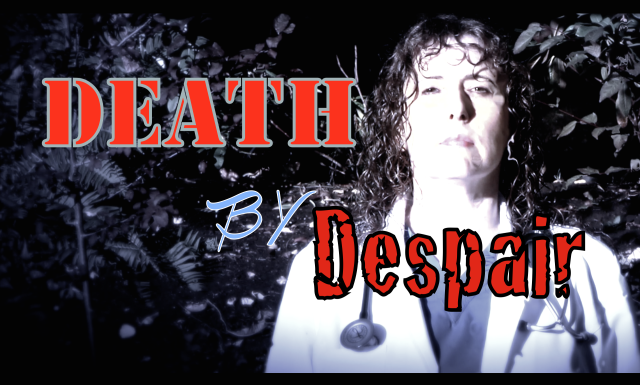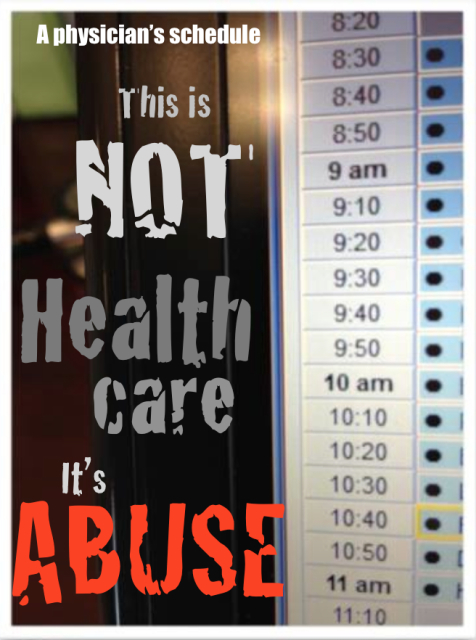 A physician in Texas posts this photo on Facebook. Caption: “My schedule one morning in January 2014. Never again . . .”
A physician in Texas posts this photo on Facebook. Caption: “My schedule one morning in January 2014. Never again . . .”
Yay! Another physician breaks free from assembly-line medicine.
High-overhead, high-volume offices sacrifice the sacred physicians-patient relationship and perpetuate a disease-billing management system. This is NOT health care. It’s abuse.
Patients: avoid clinics with 10-minute slots. Go for docs who offer 30-60 minute appointments. Physicians: stop following the same old practice management advice. Follow you Facebook friends. They offer the best support and business tips:
This is so sad!!!!
I can’t believe people practice like this! Every 10 minutes??? We’re doctors, not robots!
And this is what people have to spend their hard earned money on insurance for. Pretty sad, but mostly sad for the exhausted doctor who can’t possible be making a difference in someone’s life with 10 minutes.
Throw in a cumbersome EMR and that’s a recipe for surefire burnout by 10 am!
I was a medical assistant back in the day for a physician who kept a schedule like this. This is an impossible schedule to maintain and just sets up a system where the individuals involved with providing care constantly feel like they are failing. Very demoralizing. Very depressing. Definitely not a practical approach for the patient or the physician (and his/her minions). I used to get chastised for taking “too long” to collect a patient history (even five minutes was considered “too long”) and the physician told me I had to “stop talking to the patients so much.” I told the physician that there was no way to get an accurate history without talking to the patients for more than five minutes… the physician told me I would “eventually grow out of my need to talk to people.” Ha. Wrong.
This makes me want to cry.
This has been normal for the state NHS GPs here in the UK for over a decade! Only now are they burning out as the state wants them to do surveys, audits, med reviews, etc as well as consult with the pt in the same 10 mins!
Obscene.
This is crazy, not only does this burnout the physician but how on earth can any true healing happen with type of schedule, no time to even talk to them no wonder the country’s health sucks and we spend so much money because there is no healing in the business of medicine.
Welcome to my world. Friday, like too many days, I did not get to pee or have a sip of water…eating almost never happens and a “lunch” doesn’t exist… I felt like I was in solitary confinement. Thank God I still love what I do and love my patients—these are the only two things that keep me going.
That’s nuts!
Yes, and the amount of documentation required to be reimbursed adequately for that 10-15 min visit takes about 25 mins each patient unless you can stomach being a fraud (which I cannot) so then you’re perpetually behind on that, so…the cycle is very dissatisfying and makes a lot of us wish we had chosen another career option, but then we realize that our medical school debt is so deep that there is no other option for us, so we carry on… 🙁
When did this great country become a country of wimps and sickly people?
Dear physicians, NPs & PAs: PLEASE rebel when the bean counters try to do this to you.
We write our own stories through the choices we make.
You have the power to say NO!
Pamela Wible, M.D., is the founder of the ideal medical care movement. She teaches physician retreats where she helps physicians reclaim their lives and their careers—so patients can finally get the care they deserve.

